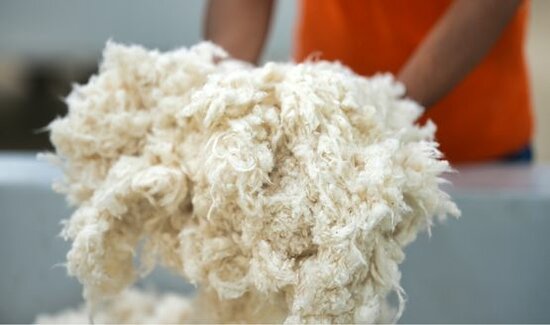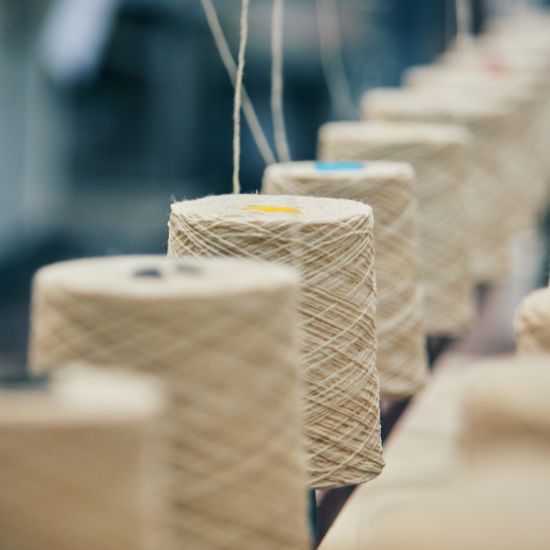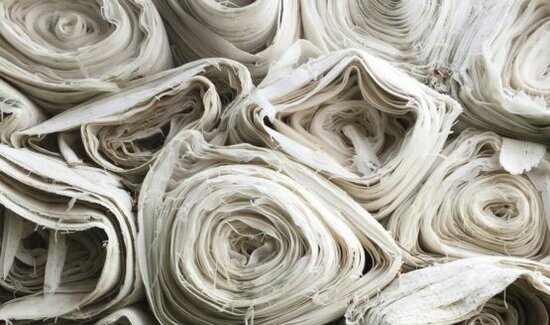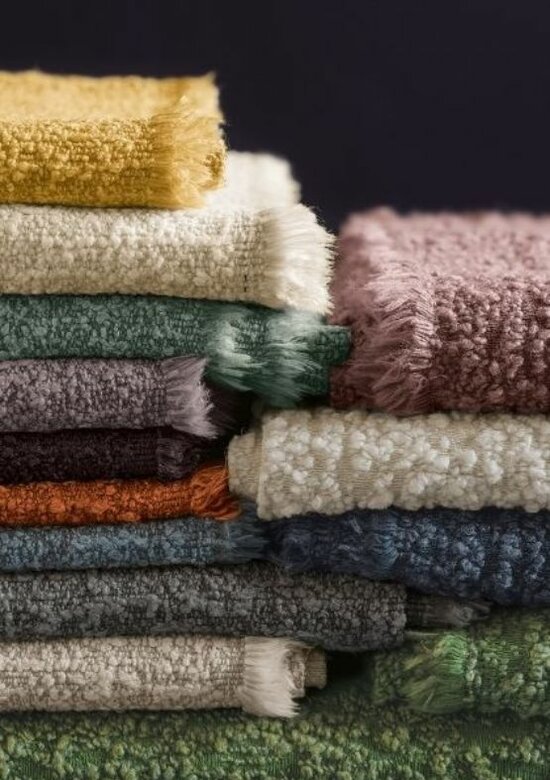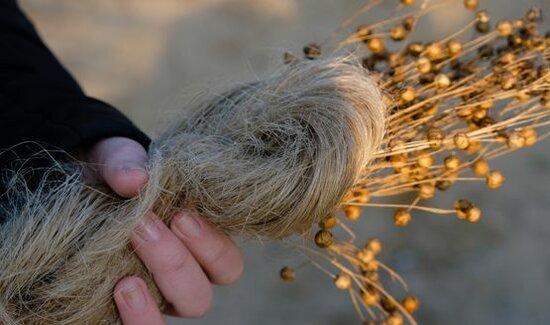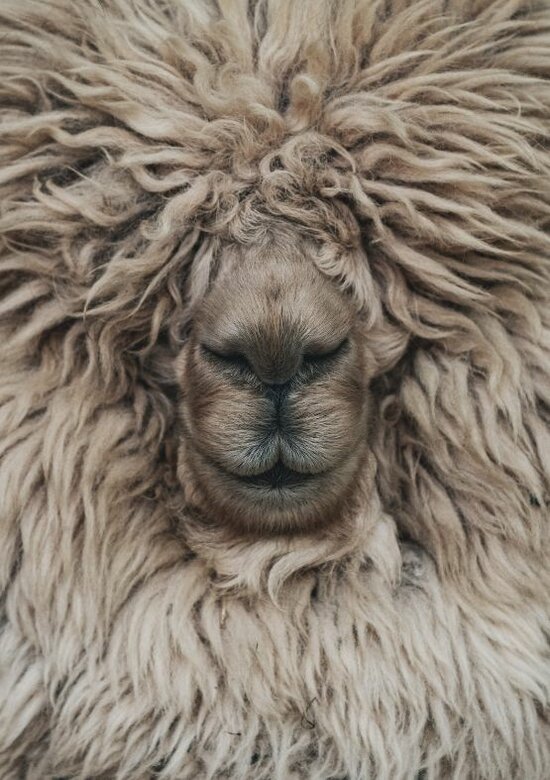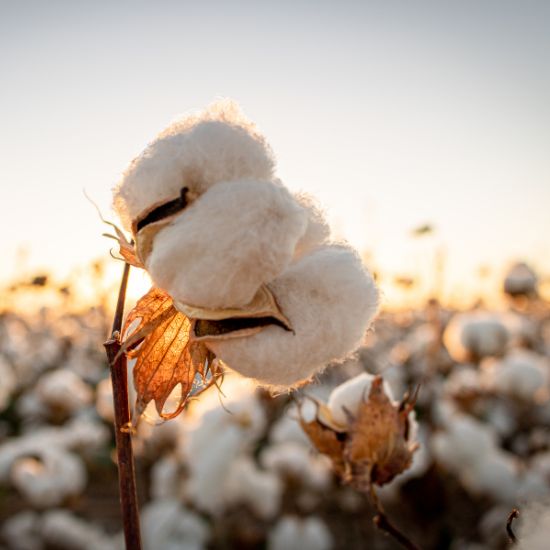Organic fiber fabrics offer quality and comfort while supporting a healthier planet and promoting ethical production standards. Organic fibers are produced without synthetic chemicals, pesticides, or fertilizers, reducing pollution and soil degradation while promoting biodiversity. Environmental sustainability is enhanced through efficient resource use, crop rotation, and composting, which improve soil health. Additionally, organic farming typically has a reduced carbon footprint and uses water more efficiently, helping conserve this vital resource.
Ethically, organic farming supports fair trade practices, and promotes better working conditions and fair wages. We ensure quality in our organic fibers by choosing those with the following certification standards: GOTS, C2C, Fairtrade, and European Flax, as well as RWS when it comes to animal fibers. If we are advertising that a piece of fabric contains organic fibers, we ensure that at least 50% of the content is organic.

